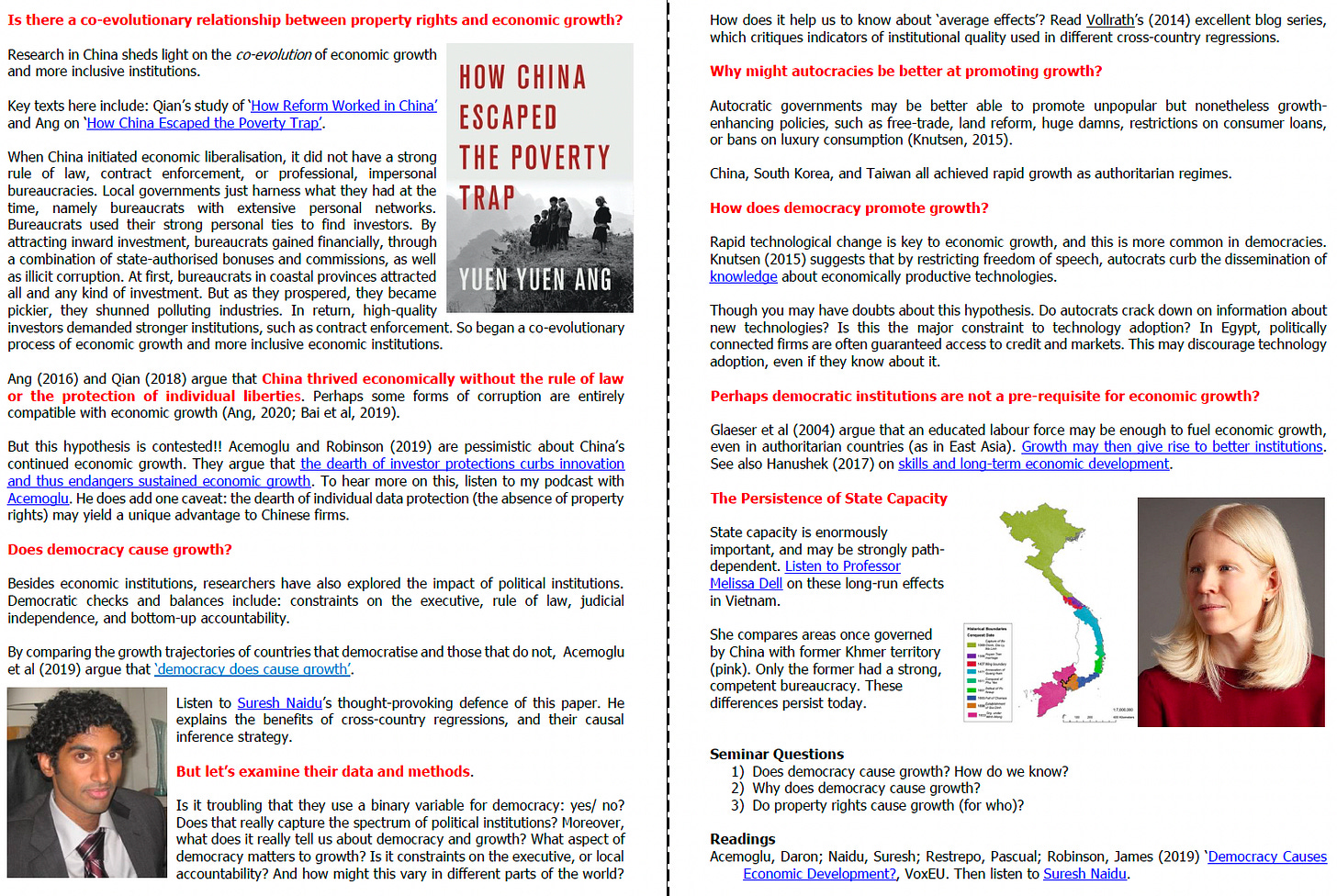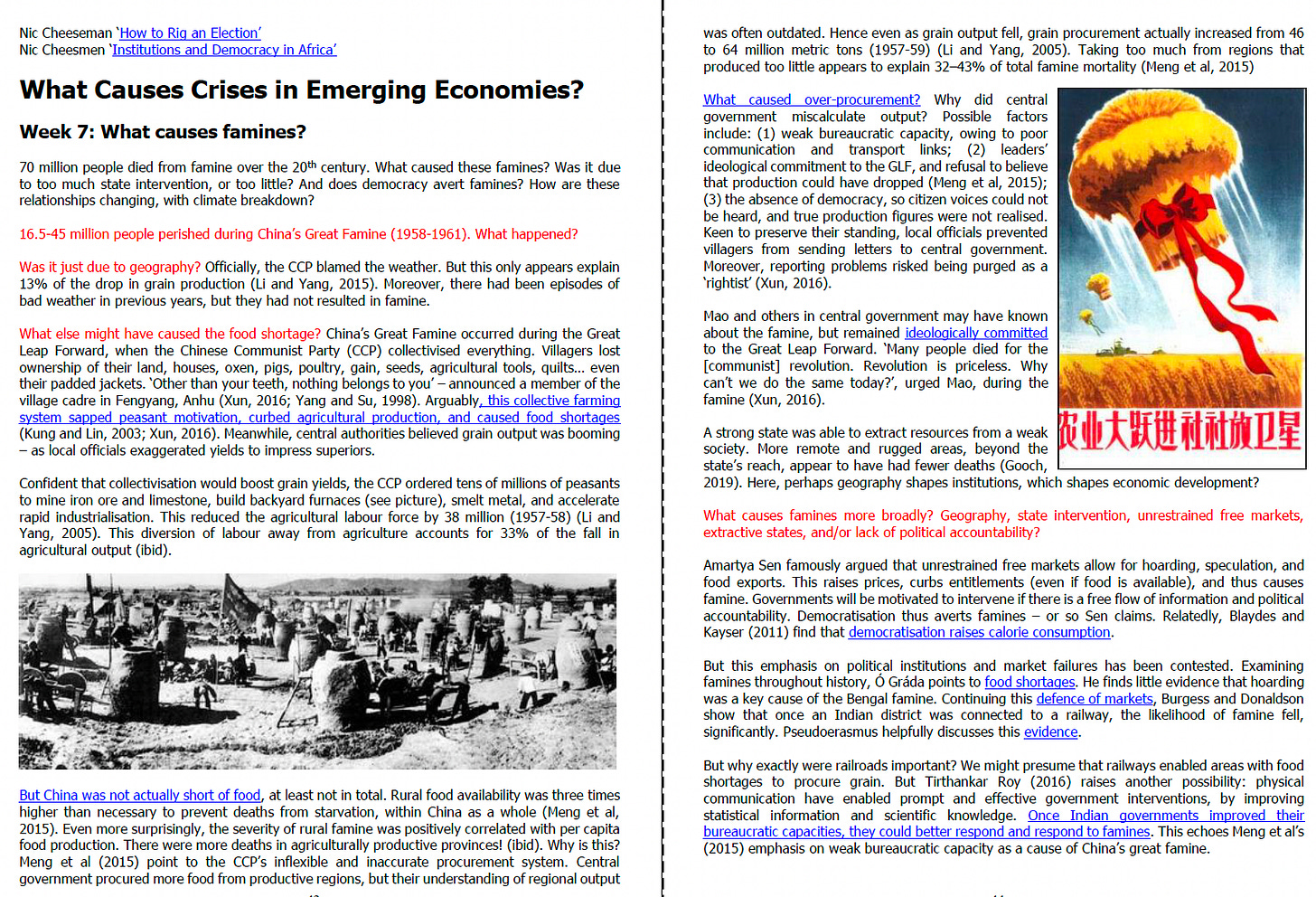My Tiny Textbook on International Development
I wrote a Tiny Textbook on the Political Economy of International Development.
It synthesises the empirical literature on land reform, trade, industrial policy, institutions, authoritarianism, famine, climate breakdown, sovereign debt crises and gender.
A hundred pages, jam-packed with my favourite papers, podcasts and other resources - free and publicly available for all curious.
Course Outline:
What Drives Economic Development?
Land Reform
Trade Liberalisation
Industrial Policy
‘Good Institutions’
Why Are Some States Democratic & Others Authoritarian?
What Enabled Democratisation?
How Do Authoritarians Maintain Control?
What Causes Crises? How Can They Be Averted?
Famine
Climate Breakdown
Sovereign Debt Crises
What Drives Progress towards Gender Equality?
The Great Gender Divergence
Click here to read my Tiny Textbook on International Development.






I read the intro and scanned the TOC. It doesn’t mention property rights.
People who are not secure in their property will be less inclined to generate a surplus. They rightly fear that it will be taken from them, and their efforts wasted.
Also, it seems to define capitalists as people who have more than others. I believe that is a bad definition. A capitalist invests what is surplus to need to generate more wealth. A feudal lord who does so is arguably a capitalist. A feudal lord who does not, is not.
Very informative outline for economic development course however the education element in economic progress is missing in the outline - any suggestions?